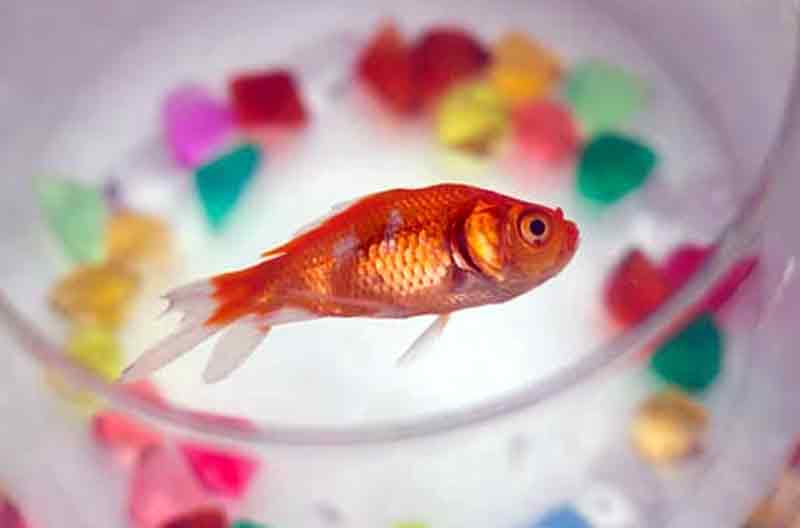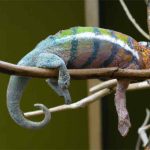Why Do My Fish Keep Dying? – Maybe now you are frustrated because the fish keep dying in your tank. Of course, it doesn’t just happen, there must be a reason, and there is always a solution.
In this article, we try to answer the question “Why do my fish keep dying?” and how to solve the problem. Let’s dive deeper!
Lack of Oxygen
Why do my fish keep dying? The first reason is the lack of oxygen in your tank.
All living things on Earth need oxygen for them to live, including your fish. This is the most basic knowledge in fish care.
The mistake of beginners who are new to keeping fish in tanks is to cover their tanks tightly. They are worried that the fish will jump out of the fish tank.
Certain fish such as arowana, like to jump and will be fatal if the tank uncovered. However, they do it out of stress!
That situation is very uncomfortable for the fish in it. So, it is not impossible that the fish will start to limp and die from lack of oxygen.
You need to know, the water in the fish tank does not circulate like in rivers or lakes. So there will be minimal supply of oxygen dissolved in the water.
For that, you need to make the water circulate to produce oxygen. So, you need a machine that can do that for 24 hours.
One of the machine that can provide it is an aerator air pump. You can easily find them in fish stores or online.
If you really have to cover the fish tank, then you have to use an aerator air pump.
However, even if your fish tank open, you still need an aerator air pump to meet the oxygen needs in the water.
In addition, you can also use the aquarium water pump powerhead. The function of the machine is to suck water in, and release it back, so that the circulation in the water runs.
Usually, the aquarium water pump powerhead will suck the water, and release it in the filter box. The results of the purification in the filter box will be dropped back into the main water in the tank.
Wrong Fish Selection
The second reason why your fish keep dying is because wrong in fish selection.
If you just love a fish and buy it without any consideration, it could be a disaster in your fish tank.
Before buying, firstly you have to know what kind of fish you care for. Is it a carnivore, an omnivore, or a herbivore.
Carnivorous fish (predators), should not keep together with small fish or other types. It is very likely that they will be eaten by these predatory fish.
As you know, carnivorous fish need fresh meat for them to live. If you keep small fish in same tank, it’s like you are bringing together predator and prey.
However, not all types of predatory fish act aggressively. Some will be afraid of fish that are bigger or equal in size.
In addition, most predatory fish prefer to live alone in the tank, rather than sharing with the same species. If these types are in the same tank, they will fight and can cause death.
Other fish are omnivores or herbivores, usually tend to be peaceful. However, some fish have a semi-aggressive character. They will attack if the territory is in danger (but usually not fatal, just to keep it out of its territory).
In choosing fish, firstly you should look for information about fish before keeping in the tank. Or you can ask the seller about the character of the fish, and which fish are suitable as their tank mates.
Related: Best Food for Flowerhorn Fish for Head Growth and Color
Poor Water Quality
Poor water quality is another reason why your fish keep dying.
Water for fish is like air for humans. For this reason, cleanliness and chemistry in water needs to be ideal.
There is no specific standard for the water parameters for fish, because it depends on each (fish) and where they come from.
For example, brackish water fish parameters will be different from fish that live in rivers. Information about the ideal parameters for certain types of fish, has been widely spread on the internet.
However, the most enemy of all fish is ammonia which comes from fish feces. This substance will make the water cloudy and bad for fish health.
To deal with high levels of ammonia in the water, you will need to do water changes, and provide a good water filtration system.
For the record, changing the water is a good thing, but you can’t change the water completely. As a general rule, you can change the water about 20% of the total water capacity in the tank, change it with fresh water that has been settling overnight.
A water change will clean most of the ammonia in the water. It will also clean up any food residue that causes cloudy water.
You can do a water change once a week or if needed.
In order to keep good water conditions, you need the help of a good filtration system. Some items commonly found in the filter box are:
- Dacron
- Bio ball
- Zeolite
- Bio sponge
- etc.,
Each of the above items has its own function.
Also pay attention to the pH and temperature in the water. Each type of fish has different requirements for temperature and pH.
However, you can use a water pH test kit, or buy a chiller (if the water temperature is too high), and a heater (if it’s too low). Use a water thermometer to measure it.
Overfeeding
Overfeeding is another reason why your fish keep dying. Whether you realize it or not…
We have to admit, feeding fish is the most enjoyable time in fish care. It’s fun to see them fighting over the food you give them.
However, feeding becomes dangerous if it is frequent and in big portions. Hope you pay attention to this!
You should do feeding two or three times a day with ideal portions. That means the fish can eat food in no more than 2-3 minutes. Within that time, the food should have no leftovers.
Leftover food will break down and dissolve in water. It will be bad for water quality.
In addition, there are some types of fish that will not stop eating even though they are full. For example catfish and goldfish.
They will continue to chew even though their stomach looks big. As long as they saw food, their mouths wouldn’t stop.
Many fish die suddenly because of this overfeeding. In fact, in some cases their stomachs were torn apart because they were too full of food.
Some foods are not friendly to fish either. For example, live foods from wild. They may not be sterile and have the potential to carry disease. Or crickets for arowanas, their sharp leg spines can injure the fish’s mouth and digestive system.
Ask the seller in detail what foods are suitable for fish, and how many times a day they need to be fed.
Fish Tank Is Overcrowded
Another reason why your fish keep dying is because the tank is too full or overcrowded.
Maybe you often see fish tanks or aquariums that contain lots of fish. That looks cool indeed! But is it good for fish health and happiness? Think twice!
What size tank should I use?
Each (fish) has different needs and conditions, but in general a bigger tank is better for the fish.
- First, because they can swim freely. In their natural habitat they also have a large playing area.
- Second, oxygen will be better in a larger tank.
- Third, they have privacy and will have their own territory.
- Fourth, the possibility of water pollution due to dirt and food residue will be less. That’s because the ratio of the volume of water is large with little waste.
- Fifth, satisfaction to see so great underwater scenery in front of the eyes. But undeniably, it takes up space and has more expensive maintenance costs.
However, as a general rule of thumb you can keep 1 inch of fish per gallon. If you have 10 1-inch fish, then you can provide a 10-gallon tank.
More swimming space makes fish healthier and happier. This calculation is also very good for keeping the tank clean and preventing the mass of harmful substances that can kill fish.
What will happen if there are too many fish in the tank?
Too many fish will produce a lot of feces, which makes the tank dirty and the water cloudy. Also, too much fish will produce excess ammonia, which can make the fish sick or die if the levels are too high.
However, that will not happen if you use a large tank!
So, even if you are using a very good filtration system, it would be more helpful to use a larger tank (or at least ideal as calculated above).
In addition, fish will feel very stressed if they do not have a large space to swim. This can interfere with the immune system and overall health of the fish.
Related: True Freshwater Bumblebee Goby Fish Care
Disease
The last reason why your fish keep dying is because of disease. This can happen due to poor handling. Or the fish already carried the disease before you kept them.
Fish can get sick because of bad keeper handling. For example, not keeping the water quality good (as we explained in the previous point), or adding diseased fish or food to the tank. Fish or food that has been infected will pass it on to other fish in the tank.
Solution to this problem: If you buy new fish, it’s best to quarantine the fish in a special tank first. This is to monitor the fish, are they sick or fine to be keep into the main tank. You can quarantine for a few days with aquarium salt. Don’t forget to give them oxygen. Likewise with live food (shrimp, worms, small fish, etc.), you should quarantine them too.
For beginners, you should not give live food to fish. Just give the high nutrition pellets available at the fish store. Live food is susceptible to infection with diseases they carry from the wild. But, if you buy it at a trusted fish store, that won’t happen, because the store has made a strict selection of what they sell.
Common Fish Diseases
These are some common fish diseases:
1. Parasite
Ichthyophthirius multifiliis (Ich/White spot), Trichodina, Chilodonella, Argulus spp, Learnea spp are several types of parasites that cause health problems in fish. Generally, each (fish) has a low and harmless parasite level in its body.
However, stress in fish or unhealthy tank conditions make the fish’s immune system low. This makes it easy for parasites to grow that cause disease in fish.
2. Bacteria
In addition to parasites, pet fish are also susceptible to exposure to bacteria. Bacterial exposure generally occurs due to poor tank hygiene, overcrowding, and improper feeding.
Generally, bacterial infections are caused by Aeromonas, Vibrio, Edwardsiella, Pseudomonas, and Flavobacterium spp.
There are several clinical signs related to bacterial infection in fish, such as refusal to eat, damage to the fins, and even sudden death.
3. Gas Bubble Disease
Gas bubble disease is a condition in which bubbles become trapped in the eye or skin. Bubbles may also be present in the fish’s organs.
This disease occurs due to gases that come out of the bloodstream when there is an increase in pressure or supersaturation of nitrogen, oxygen, or carbon dioxide gas in the water. This condition triggers the formation of emboli (gas bubbles) in the gills or choroid glands in the eyes.
The main cause of this disease is due to drastic changes in temperature during water changes. Therefore, we recommend not doing a full water change, just 20% of the total water volume is enough.
4. Cancer
Not only humans and other animals, fish also have the same chance of getting cancer. This is because fish do not have immunity that can fight cancer. For the most part, cancer cells appear as abnormal growths both outside and inside the fish’s body.
5. Popeye Disease (Exophthalmia)
There are several types of fish that have bulging eyes, but that’s normal and cute. This disease is different, although it looks bulging eyes, but there is swelling and looks cloudy. This can happen in one eye or both.
The cause of this disease is due to injury to the eye. Either from fighting or getting scratched by objects in the tank.
Popeye disease caused by an injury can heal on its own.
In addition, Popeye disease can also be caused by bacterial, parasitic, or fungal infections from inside the tank. Poor water quality can also trigger this disease.
To treat all the diseases above, it’s a good idea if you keep the water quality good, don’t put potential parasites in, and use aquarium salt if it is necessary for prevention. Furthermore, you can seek advice from an expert or vet.
That’s the answer to the question “why do my fish keep dying?” and the solution. Hopefully useful for you!




